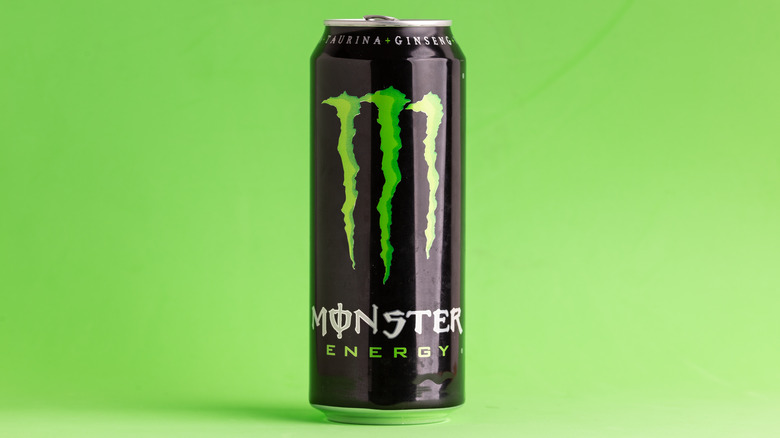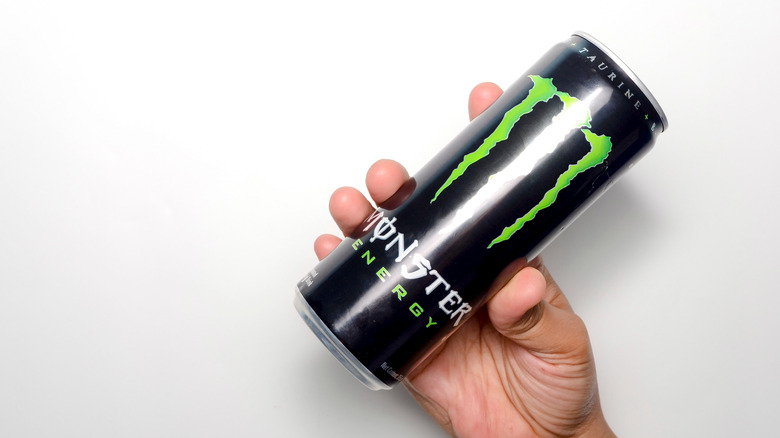The Surprising Roots Of Monster Energy Drinks
While you were chugging that can of Monster Energy Drink (or two or three) when you needed a quick boost of energy to get through a long day, what you may not have known is that the brand has an interesting backstory. Created by Hansen's Natural in 2002, there are now more than 34 flavors available to choose from including tea-based Rehab, the coffee-flavored Java, Dragonfruit, and Mango Loco to name a few — and the company is frequently a sponsor for motorsports and music acts; some even say there's hidden Satanic symbols on the cans, according to Delishably.
Monster Energy Drink is pretty popular too. It's considered to be the second bestseller in the energy drinks category after its top competitor, Red Bull (via Delishably), but with the Coca-Cola company acquiring company shares, that could soon change. In fact, Red Bull and Monster Energy drinks are not too different from each other in terms of what they offer. Both have similar amounts of caffeine, carbs, and calories, says Healthline.
However, when it comes to the origin story, Monster Energy Drinks really stands out.
The creator of Monster first focused on natural juices
The parent company that originally created Monster Energy Drinks was Hansen's Natural, whose mission was so far from that of the energy drink it's a real head-scratcher how Monster came to be. According to Fortune, Hansen's was first founded in the 1930s as a family run business that actually started off by making fruit juices. Hansen's claimed that their drinks only used natural ingredients and were good for you. Though the company did experiment with sodas in the 1970s, they still stuck by their original plan to create natural products.
Things definitely took an unexpected turn when they decided to experiment with Monster Energy Drinks, launching the line in 2002. One of the primary reasons was to gain more popularity and brand recognition as the energy drink market started to really take off. Turns out it was a great idea — Monster was extremely popular when it was first launched and the company's profits soared beyond their expectations upwards of $1.7 billion annually.
The ironic part is that Monster is not exactly natural or incredibly healthy — one can of the stuff might have upwards of 50 grams of sugar and can be dangerous if consumed in excess, particularly in combination with underlying health problems, as Delishably pointed out.

